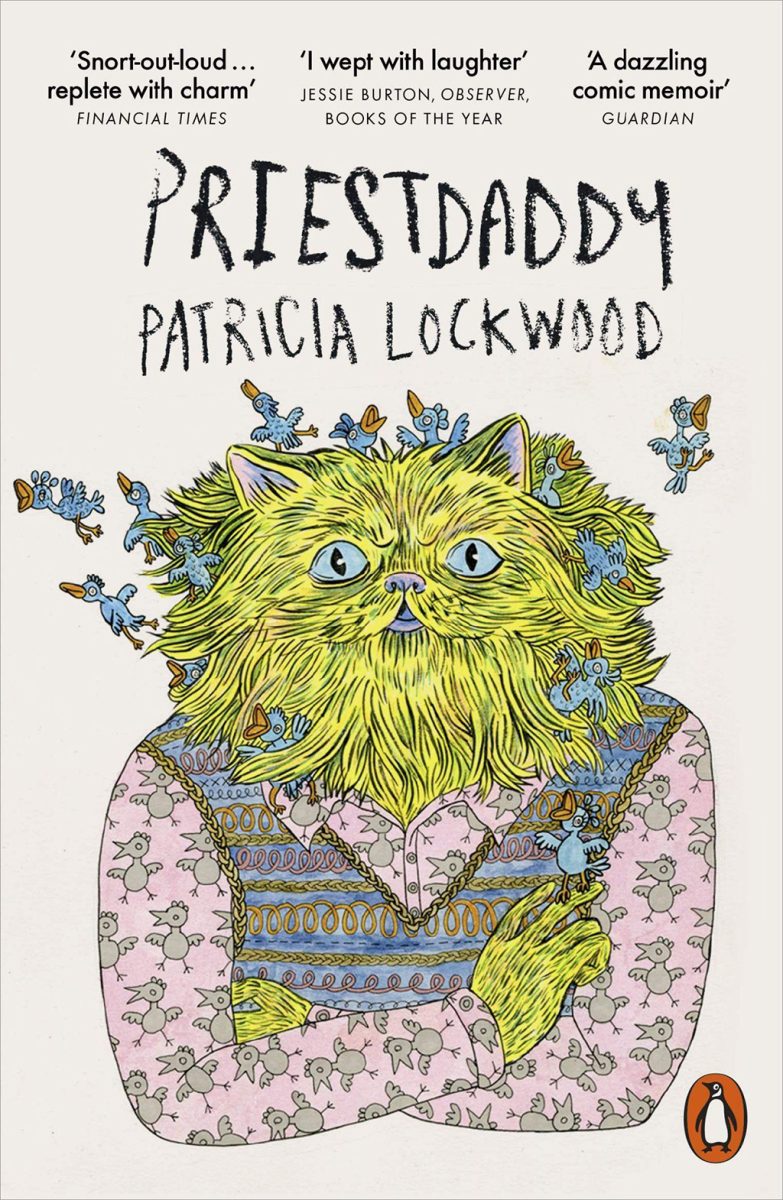At the beginning of 2022, I was still a student. Just along the fag end of that identity. At the end of 2022, I was a teacher. On a lot of days, I feel a bit trivial. I hope not to be asked what I do for a living; I teach in the same department I had, until now, known as a student. And I sit at my desk in a room full of my teachers-turned-colleagues—and feel silly. Sometimes when students come to meet me, I usher them to a bench outside our department where we sit and talk, because I feel too sheepish playing teacher while sitting so physically close to people who taught me and once knew me only as a student.
This essay is not about me being a teacher. It’s too soon for that. But teachers and classrooms and reading are important ways of arriving at what I want to say. My discomfort with this newfound identity—of being a teacher—reminds me of my general timidity to use the word fangirl. But fine. I will say it. This essay is about being a fangirl—that all-encompassing word to designate many of our relationships with writing and writers. An essay about a word I suddenly feel hesitant to type because I fear it makes what I write less important. An essay to get over it.
In an MA classroom, back when I was a student, I was nudged out of sweet indifference when a classmate remarked that fangirl was a derogatory term and that she did not take too kindly to being called one. She wondered why boys got to be fans but the rest of us had to be fangirls. This took place in a course rather fittingly titled Introduction to Feminist Theory. I perked up at the fan–fangirl dispute but kept silent because it had never occurred to me to inspect this semantic anomaly that she pointed out; I even felt some quiet indignation.
In the classrooms I came from, being a fangirl and using that specific word was not something we had to tussle with. Not something we came to cope with. We did not mind that the bum of fan came padded with a girl.
Months later, when I got the chance to put my quiet indignation on paper, I felt a bit dense. Around then, I was reading Priestdaddy by Patricia Lockwood. The very young Lockwood meets a man on the Internet and decides she is in love with him because of a single delightful image from one of his poems—the milk bottles burst like scared chickens. She falls and then explains her fall.
It might strike you as irresponsible, to fall in love on the strength of one image about chickens bursting, but this was a different time. I didn’t even know what he looked like. He was under the mistaken impression that I was “fifty years old and Latina.” We were all made up of words.

In my copy of Priestdaddy, these lines remain underlined. I felt like it answered why I was a fangirl. The idea that I could fall in love with words and fall in love over words began in my classrooms. Up until then, I had a very petite and polite authority over language, which is to say I had none at all. I would read but never with the intent of writing. Or with any other intent.
In college, my teachers taught us to read with intent. An irresponsible love, like Lockwood’s, for words and the people who wrote those words soon followed.
In one of my sporadic conversations with her, a new friend remarked that fangirls were a dying species. I wanted to tell her, “No. You just don’t know enough of us.” But she speaks too fondly of our species for me to reply in retort. And I figured it would be better to write about them.
In the Tribal Law and Literature course offered at the English and Foreign Languages University (EFLU), Hyderabad, you will find a loud gathering of otherwise quiet students. Swati was an exception. She was loud in all her classrooms. She took up space in every one of them, and sometimes it made her classmates and teachers uneasy. I ask Swati whom she fangirls over. She tells me that her love for Byronic poetry confuses people. They expect Babasaheb or Savitribhai Phule to be the objects of her affection. But when the Dalit student is equally at ease with and maybe even fastens herself to anything beyond her mould, the classroom becomes unsure. They cannot make sense of her in ways that come easily to them.
Among other things, Swati describes Lord Byron as dainty. “He was a flaming bisexual who fought in the Greek War of Independence.” When we talk over email, she tells me that sometimes she is hesitant to bring up caste and tribal rights in the classroom. “I cannot have my classmates thinking these are the only things I can talk about. I want to be able to talk about tribal issues but I also want to be called upon to discuss Derrida or Merleau-Ponty. I don’t know what kind of balance I keep chasing.”
My friend Anquna is a young teacher. She tells me that students never remember what you teach them. But they notice and remember that the wallpaper on her phone is a picture of Gabriel García Márquez. They tease her for loving this faraway Colombian for his tales. They remember when a teacher pronounces their name right. They remember all the stories you tell and they act on these stories.
Every odd semester, a band of eighteen-year-olds trickle into some old bookstore on Church Street in Bangalore to get themselves a copy of One Hundred Years of Solitude. Often with the hope of feeling that ludic love their teachers embody. Classrooms birth fangirls when students spot the most unapologetic fangirls among their teachers.
When Joan Didion died in December of 2021, Twitter showed me a tweet by someone who said they were never aash-posh enough to read and rely on the white woman the rest of us were so zealously grieving. I think back to a Zoom call where a junior from Mangalore reported that he decided to leave the seminary after reading Didion. He gave us nothing more. I think about the Instagram story of the girl from Tirunelveli that led me to Sheila Heti. I think about the class of twelve girls and two boys who adopted Dorothy Parker after the teacher read out A Telephone Call. I think about the teacher who betrayed her curiosity for these white women and showed her students that they could have them as well.
An incomplete quote by my favourite woman, Fran Lebowitz, floats on the Internet: Think before you speak. Outstandingly prosaic. In the documentary series, Pretend It’s a City, Fran furnishes us with the rest of her quote: Think before you speak. Read before you think. Maybe someday I can be as curt as Fran, but today I must tell you about a girl named Kiruba who reads and writes and watches like her life depends on it.

Kiruba tells me that she knows “when to say ‘shut up, moodevi’ and walk away”. She tells me about her friend Sharon whom she met over fried rice and remained friends with over Greta Gerwig. It’s been over three years since these two have sat in the same classrooms; they’re back home with their families now. But Kiruba from Tirunelveli and Sharon from Angamaly still turn to Greta from time to time. “On some days, we just sit and talk about her for hours. We think Greta also fights with her mom on a daily basis. We continued to stay friends because we didn’t know how else to fight our moms who we live with now.” She tells me about the teacher who told her it was okay to sometimes think of “not all men” as a valid argument. She shows me a place where permissions and approval do not dictate our ways of thinking. She is an example of the friends we make as fangirls. She hints at a complete person.
In school, I knew a girl with a pretty name. We bumped into each other on the Internet years later over shared love for a writer-teacher. In conversation once, she told me that her mother had named her Judith after a widow in an old Bible story who beheaded a cruel Assyrian general with his own sword. “My mother was young and trapped in a conservative and patriarchal household, so she hid a prayer in my name and raised me to know of and to seek freedom, just as my namesake had.” Sometimes we name our daughters after the stories that give us strength. Sometimes the language that dribbles out of our love for stories might be unsightly smears across our chins. There might even be attempts to wipe it clean but this language finds a way out.
Once when a classmate shouted at me, I bolted toward the English department where I found my teacher in the company of choru and meen curry. He was perched on a plastic chair beside the window, outside which grew breadfruit. He looked like he belonged in a painting. My tears decided they could wait until my teacher had finished eating. When finally he pushed the lid of the tiffin back into place, I scuttled over and wept. He gathered my calamity through sobs and snot. Then he asked me if I would like to drink some water; I gladly took him up on the offer.
Four years have passed since then. I write this now seated at my desk in the same department—sometimes ill at ease because I’m no longer a student. They’ve replaced the plastic chairs with wood and metal ones. But I look out the window which once framed my teacher and there still grows breadfruit.
It was in this same teacher’s class that I made acquaintance with a pedantic old man from comic book history named Fredric Wertham. This is how it happened. In one class, my teacher spoke about an American uncle who was so outraged by young people reading comics that he went ahead and wrote a book opposing it, and gave it the glamorously sensual title: Seduction of the Innocent. Four classes later, Fredric Wertham was a familiar friend who appealed to me simply on the count that he could tease us with a title like Seduction of the Innocent. When I look back at these early classes, I see how easy it was to learn about strangers when they were given to us in the form of stories. I wonder when I can do this as a teacher.

Sometime last semester, I asked my students to go about campus and ask young people whether they were reading and what they were reading. When we convened in class an hour later, one girl told me that she had to make her way through twelve students before she could gather a short list with the names of four writers.
A recurring name from all their walkabouts was J.K. Rowling. One student remarked that she had been on the Internet too much for her to see beyond the blots that now speckled Rowling and her books. Another student said that she could not help but come down hard on people who still walked around in their Hogwarts t-shirts. Soon we find ourselves talking about the classroom where students protested when the teacher brought Chimamanda Ngozi Adichie to class. My students wonder about rules that oversee what they can read and cannot read. The fangirls I know can tell these rules to “shut up, moodevi” like Kiruba does and walk away also. How did we reach here?
At the various college admission interviews I gave as a seventeen-year-old, I told the people interviewing me that my favourite book was The God of Small Things by Arundhati Roy. In college, I read other people and grew more fond of them. But I had also picked up from all the Twitter and Instagram that I breezily scrolled through that it was very uncool to still gush over Roy. So she and her book quietly scampered out of my vocabulary.
In one semester, my teacher VJ brought Siddalingaiah, Sujatha Gidla and others to class. At the very end of one class, we fleetingly talked about Arundhati Roy’s introduction to Annihilation of Caste in the edition published by Navayana. Am I allowed to read it—the question came up. You must if you want to—came the reply.
In that class, VJ also told us about the fan letter she had written to Roy when she was younger; “Her agent wrote back a thank you.” Later that day, I scrolled down my teacher’s thousand-plus-posts-heavy Instagram and managed to find a photograph from 2017, captioned Fav Roy pic. From ‘In Which Annie Gives it to Those Ones.’ Sometimes being a fangirl is about knowing why you grow out of people and their writing. But most times it is about not letting anyone else bulldoze you into that growth.
Maybe being a fangirl is a chance to rewrite yourself. It reveals itself in our urgency to write more and read more and watch more. Maybe that is why we grab the opportunity to be one and throw ourselves at it. Because we think—even when we feel too silly to say it—that it will somehow save us.
I see it in the woman who knows not a word of Italian but tucks into her bookshelf a copy of Elena Ferrante’s My Brilliant Friend in the Italian original that she got from Naples. I see it in a group of girls in a classroom, who can ignore the spectacularly bored boy next to them, and tell me about watching eight episodes of a K-Drama to see love interests hold hands.
I see it in the girl who treads up to me after reading Kari by Amruta Patil and tells me about her lesbian cousin who got dumped. I see it in an Instagram post where Jia Tolentino says of Joan Didion, “It’s strange and painful and lovely to think of her being kind.” And what that says about the notions we have about the people we only know through their writing. But best of it all, I see it in classrooms where my students discover, slowly but surely, what Fran means by, “A book isn’t supposed to be a mirror. It’s supposed to be a door!”
On a Sunday two months into teaching, I watched the film Mona Lisa Smile. The film has Julia Roberts playing the art history teacher Katherine Ann Watson who takes on a teaching position at Wellesley College. Someone on Letterboxd reviewed the film as an all-female Dead Poets Society. But Katherine Ann Watson does not walk into her classrooms in hope of winning over her students. She just intends to teach. And she is determined to not let anyone or anything meddle with this role.
A job like teaching that occasionally likes to taunt you can only be tamed if you can imagine yourself as Julia Roberts tackling a classroom full of unwillingness. As Katherine aka Julia lingers outside her first classroom, she is warned by the campus nurse, “Be careful. They can smell fear.”
When I walk into some classrooms I wonder whether students can smell my fear. In one classroom I walked into, most students were confident in using English and very few spoke anything apart from it in their homes. It seemed as though their command over English made them allergic to anything beyond the sanctuary it offered them. I told this class about the time my family moved to Bangalore and I refused to speak English. I was afraid of the thickly accented stuff that would escape me.
From the right-hand corner of the classroom, a head reared forward. A student who previously went unnoticed was suddenly looking at me. She wrote madly at the end of that class and handed over a page from her notebook to me when I left. In it she had written about not understanding what her new classmates said because their English was too fast.
Sometimes, it is only when a class intimidates me that I’m able to see the students who are equally intimidated by the young people they share a classroom with.
An older friend told me I should take the women I love to read into the classrooms that daunt me. When I took a video interview of Fran Lebowitz to this class, I noticed the same student squinting at the subtitles. When we paused the video, some students commented that they found Fran unrelatable. How glad she would be to hear that! A few others did not take to the dog-hating know-it-all I made them listen to.
Then the otherwise quiet squinter remarked, “She’s funny but I don’t think I could understand a word she said without subtitles.” I was thrilled for reasons I did not tell her. Instead, I told her about my sincere but fruitless attempts to watch a previous Fran Lebowitz documentary, Public Speaking, without subtitles.
When I left class that day, I remembered the keenness I felt toward the books and movies my teachers shared with us. About how when I was eighteen, all I wanted to figure out was what exactly these texts did for the thirty-two-year-old woman or fifty-year-old man who taught me. At eighteen, I did a lot of this figuring out by sitting in classrooms among other fangirls and writing. I wrote long essays about the women I obsessed over, about the people I found in their books, and about the movies I watched again and again because they spoke to me without bothering to be relatable. At twenty-three, reluctant to call myself a fangirl, all I had to do was to find my way back into classrooms.





